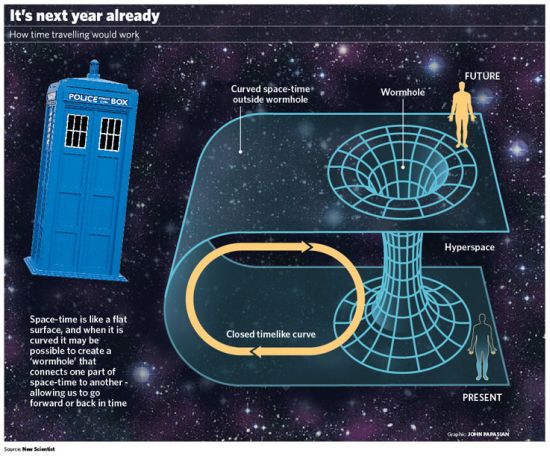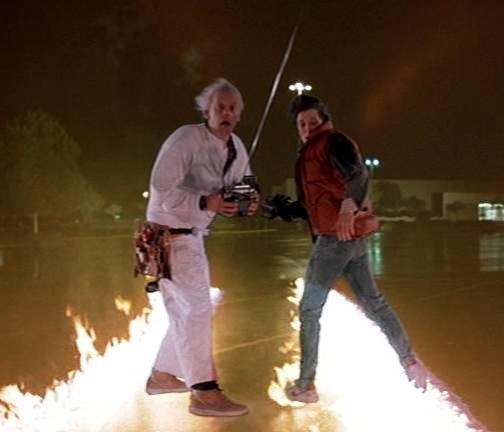The challenges of writing fiction involving Time Travel
(This first appeared as a guest post on Once Upon a Bookcase)
Of the various genres of fiction, the writing of Sci-Fi and Fantasy novels brings with it their own unique challenges. Writing any fiction shares a number of common elements which apply equally to this genre as to any other. So, for example, it is still necessary to invent and flesh out believable characters complete with their own share of motives, flaws and strengths. The reader needs to care about the main characters just as much as in any other form of writing. It is important to have a good strong story which is well plotted and wraps up nicely at the end. A lively pace is just as necessary to maintain and the book has to be just as well edited and readable as any other.
Where Science Fiction and Fantasy (along with Historical Fiction) requires extra effort is in the area of the creation and laying out of the rules that govern the world you have created. If your novel is set in modern day New York all the readers will instinctively know a large amount already about the world that surrounds the characters. They know about New York Taxi cab drivers, cops, the Bronx, the Twin Towers, Time Square, baseball and hot dogs. Even if the novel explores a less familiar part of New York all that background knowledge will still mean the writer does not need to explain too much about the world the characters are in.
This is not true of Sci-Fi/Fantasy/ Historical Fiction. In all these cases the world you are creating may be radically different to our world. My Historical Fiction Novel The Amber Treasure for example is set in the quite obscure time of 6th century Britain. So along the way I had to weave into the story enough background about the invasion and conquest of Britain by the Saxons, enough about the food they ate, the clothes they wore and the way that warriors trained and fought so as to fill in the gaps in the reader’s knowledge. This process is also necessary if the novel is set on a manned mission to mars or a fantasy world. In the case of Sci Fi and Fantasy the way the world works may be even more far removed from our own. There may be magic, there may be matter transport, faster than light travel and any of a thousand other differences.
The writer must be able to establish consistent rules that the reader learns. Can anyone cast a spell or is it just a few? Is there a limit to the amount of spells you can cast? Do you get burnt out by too much magic use? All these rules have to be established so the reader knows the boundaries of the world. The process of passing on that knowledge, but in a way that the reader naturally picks it up without feeling they are reading a science book or being lectured to, is one trick the writer of these genres must learn.
The Rules of Time Travel
So bearing all his in mind when I decided to write a Young Adult Novel about time travel there were many decisions I needed to make about how it applied to my world:
How is time travel possible?

Time travel could be a mechanical process. It might involve a machine such as the Tardis or HG Well’s Time Machine. It might use a device that creats a route to the past such as in the 1970s The Time Tunnel series. Or it could be an often unexplained phenomenon at a specific location – a door to another time or like in Tom’s Midnight Garden a house which at certain times takes the hero back to the 19th Century. In some cases the world itself travels through time and comes to meet the character. This happens in Brigadoon where a village moves forward 100 years every night.
In Tomorrow’s Guardian I decided to make time travel a talent or ability which is inherent in certain people who are called Walkers – because by concentrating they can Walk through time. Discovering he has this ability is a frightening experience for the hero who must decide what to do with it.
Are there restrictions on Time Travel?

How omnipotent is the Time Traveller? Do they have full control over the process or are there limits. The Tardis in the earlier series of Dr Who was very erratic and the Dr had almost no control over where and when they would appear. In The Time Tunnel the travellers get sucked away at the end of every episode and on to their next random encounter. In Planet of the Apes Time Travel is by virtue of moving at near light speed and is always forward in time and never back. This is true of the tale of Rip Van Winkle in which he sleeps for 100 years in a cave. In The Terminator time travel is one-way and backwards in time.
In Tomorrow’s Guardian I allow a high degree of control over time travel but there are limits:
“So… then, I only get one shot at this?†Tom frowned as he thought it through, “I mean, if I mess up, I suppose I can’t …â€
The old man finished the question, “Just try again? No, certainly not. Firstly this is not a video game. You can’t load a saved game or whatever the correct terminology is. Secondly, you can’t begin to imagine the complications of actually meeting yourself. Other than it being extremely embarrassing, that is. I mean who else knows all the bad things about you, except you!†The Professor smiled then grew serious again, “But aside from this, it breaks a fundamental rule of the Universe and while we may manipulate time to a limited degree believe me, my boy, when I say we do not break such rules. Thirdly, you just can’t. It’s been tried. You cannot, having visited a time, revisit those same moments. It’s as if somehow time keeps a record and blocks those years from you forever.â€
Can you change the past?
The writer has to make decisions about how the time traveller can interact with the past (or future). Is it possible to make changes to history. It may be that the traveller can only observe the past – such as Scrooge in A Christmas Carol. Or it could be that history can be radically altered by a single action. In Back to the future II the history of a small town in the US and the lives of many of the inhabitants is altered radically when a book containing details of future sporting events is taken into the past. Another option is that you can interact with the world but that history is robust and will, by and large, play out the way it originally did.
In Tomorrow’s Guardian I allowed history to have a certain resistance to fundamental change but still a radical effect on individuals might be possible:
“Well, from what you are saying then, none of us is important. So it would not matter if we did accidentally wipe out this family and all their descendants,†said Tom, pointing out a flaw in Septimus’ thinking.
“No, that is not what I am saying. What I meant was that history is like a great river surging along. Its force and power is irresistible. Mankind would always have invented fire, learned to write, made machines and explored his world. Nothing could have prevented those things. But even so, sometimes everything hinges on what one person, man or woman, does …â€
Their conversation was interrupted by a shout of alarm from the building they were watching. The baker’s apprentice had spotted the fire and was rushing upstairs to raise the family.
“But right now, everything hinges on what you and I do in the next few moments,†Septimus observed.
Tip of the Iceberg.
There are many other implications of including Time Travel in a novel that must be thought through. Can you create Paradoxes such as accidentally killing your own Grandfather? Will alternate worlds exist where a decision gone one way creates a parallel universe? What will the characters who can travel in time choose to do with it? I close with one of my characters pondering just that question.
“Tom, you know better than most that history can change. There are various powers in this universe with vested interests in the course of time. They seek to change it, to preserve it, to observe it or some just to profit from it. â€
“Yes, I know − we have been through all this already, and we know which sort you are, don’t we?†Tom retorted sharply.
The use of Time Travel in a novel brings with it a challenging element to a story. I have always been fascinated by it and I hope your may be too.
Richard Denning
www.richarddenning.co.uk
Tomorrow’s Guardian Paperback Published: January 2011
ISBN: 9780956483560 (Hourglass Institute Series Book 1) Published by Mercia Books.
Sequel is coming Spring 2011


Related Articles
No user responded in this post